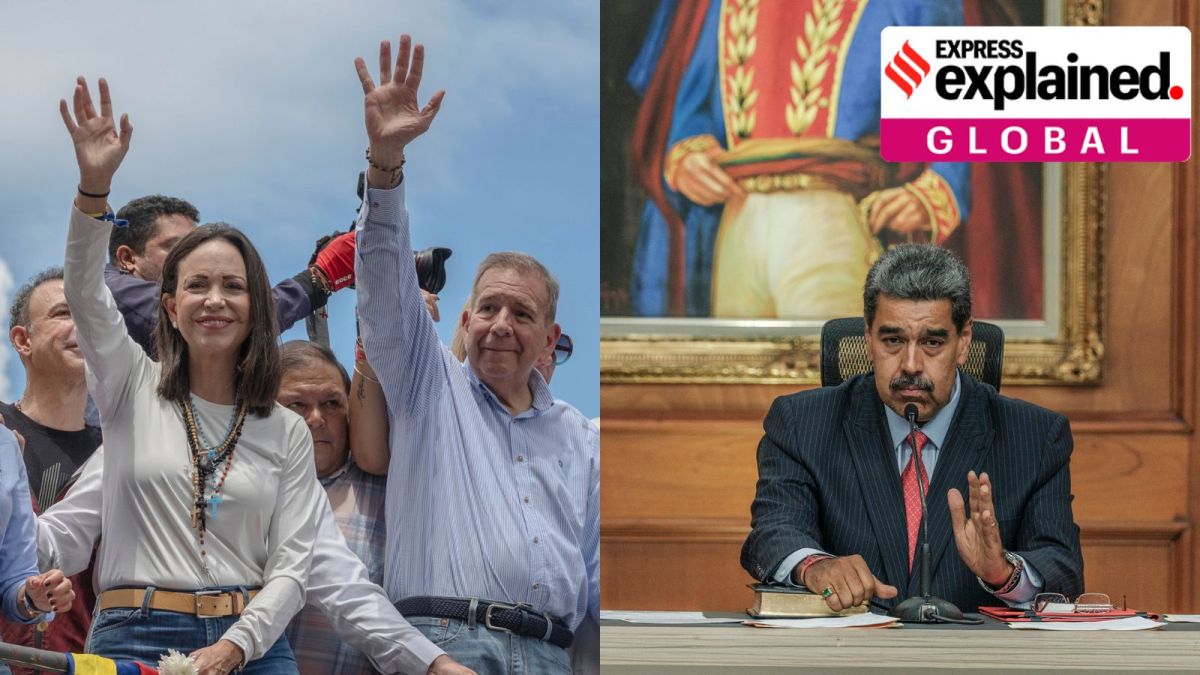Why Venezuela’s opposition Presidential candidate fled to Spain, a month after the elections
Opposition candidate Edmundo González fled to Spain on Saturday amidst the political turmoil that has prevailed since July’s disputed elections.

Edmundo González Urrutia, the opposition candidate in the disputed Venezuelan Presidential elections, fled the country on Saturday (September 7) amidst the political turmoil that has gripped Venezuela for over a month.
“Edmundo González, at his own request, flew to Spain on a Spanish air force plane,” Spain’s Foreign Minister José Manuel Albares said in a statement. Venezuelan Vice-President Delcy Rodríguez confirmed this on social media, saying Gonzáles had been “granted safe passage” to maintain peace in the country.
What was the outcome of the July elections?
The Venezuelan government under President Maduro has cracked down on opposition leaders and members of the public, as well as criticised foreign countries, following the results of recent presidential elections.
In July 2023, Maduro banned opposition leader María Corina Machado from holding public office for 15 years. The country’s apex court upheld the ban, related to corruption charges. González was thus chosen as the opposition presidential candidate.
Despite overwhelming support for González in exit polls and independent surveys conducted on July 28, incumbent President Nicolas Maduro was declared re-elected on the same day. The National Electoral Council announced the next day that Maduro had secured 51% of the vote, and his opponent 44%.
Opposition leaders alleged electoral fraud; a view also held by the US, the EU, the UK and nine Latin American countries – including Argentina and Brazil. This led to violent protests countrywide decrying the “stolen election.”
The government then deployed its forces, detaining people at will and deploying Operation ‘Tun Tun’ (Knock Knock) wherein loyalists were encouraged to turn in acquaintances and relatives who had questioned the results or participated in protests. Human Rights Watch reported that at least 23 protesters had been killed in the immediate aftermath of the elections, while over 2,400 were detained, including 114 children.
What powers does the Venezuelan President hold?
Under the 1999 constitution of Venezuela, all executive power is centred in the hands of the directly elected President, who is both the Head of State and Government.
An amendment in 2009 removed the President’s six-year term limit and allowed the incumbent to remain in power in perpetuity. Elections are periodically held for the post of President and the National Assembly and regional governments, but the Socialist Party has a stranglehold on power at all levels.
Over the years, there have been allegations of government interference in Venezuela’s courts and the National Electoral Council. The media is tightly controlled, and journalists who are critical of the government face harassment or legal action.
The President controls all major industries and economic resources. The military is a close ally of the President, and high-ranking military officials hold key positions in the government. This symbiotic relationship dates back to 1992 when tank commander Hugo Chavez, who would later become President, led an uprising against the deeply unpopular austerity government. The armed forces have since suppressed several popular protests.
And why is Venezuela important?
Venezuela has the world’s largest share of proven oil reserves, at 303.3 billion barrels or 18% globally, as per the BP Statistical Review of World Energy, 2019. The state-owned oil company, Petróleos de Venezuela, S.A. (PdVSA) is directly controlled by the President.
After becoming President in 1998, Chavez rode on the oil boom of the early 2000s, which reportedly added a trillion dollars to the treasury. The government dramatically increased spending on social welfare, which shrank unemployment and poverty rates by half between 1999 and 2009, widened and improved education, and raised Chavez to legendary status among Venezuelans.
The concentration of power in the hands of the executive and the drastic curtailment of freedoms and democratic rights attracted American sanctions. Under President Donald Trump, the scope of the existing sanctions was widened.
In September last year, the Biden administration moved to ease some sanctions for six months in exchange for the Maduro government allowing a more democratic election, releasing political prisoners, and lifting restrictions on opposition politicians.
Indian oil imports from Venezuela had dropped off during 2020-23 following the US sanctions but picked up from the end of last year after some curbs were temporarily lifted. In December 2023 and January 2024, India became the world’s top buyer of Venezuelan crude.
From Chavez to Maduro
Chavez handpicked Maduro to be his successor in 2011. Maduro inherited a government that had specialised in oil production without diversifying the economy, and was heavily reliant on imports for most basic goods and services, including food and medicine.
The crash in oil prices in 2014 sent the country’s economy into deep crisis, marked by hyperinflation and shortages of essential goods. Between 2013 and 2016, food imports fell by 71% and medicines and medical equipment by 68%, while infant mortality increased by 44% according to data reported by the Centre for Strategic and International Studies (CSIS).
The rate of inflation shot up from 255% in 2016, the year before the US sanctions were imposed, to a million per cent in September 2019, the data show. Maduro has blamed the sanctions for the economic crisis in his country.
In 2022, the UN estimated that 7.1 million Venezuelans had fled the country since 2015, more than 80% of whom had migrated to other countries in South America and the Caribbean.
This is an updated version of an explainer published on July 31.